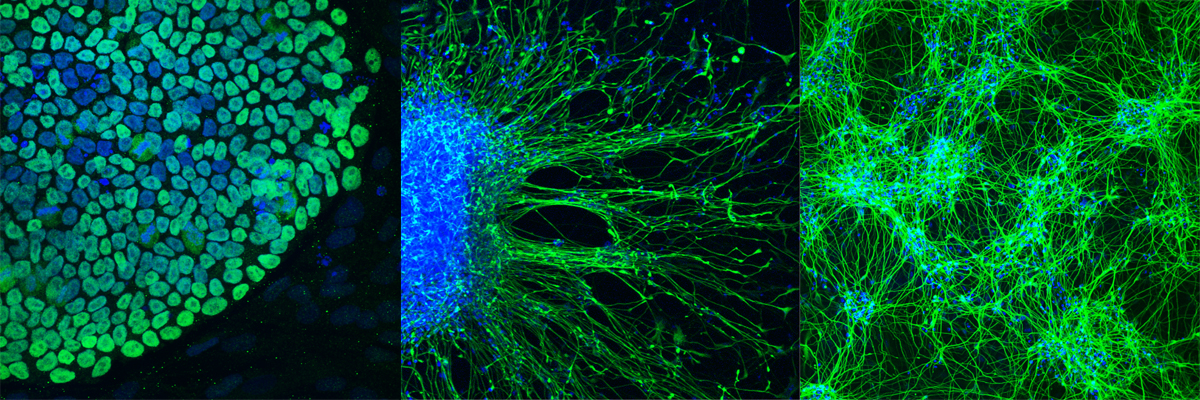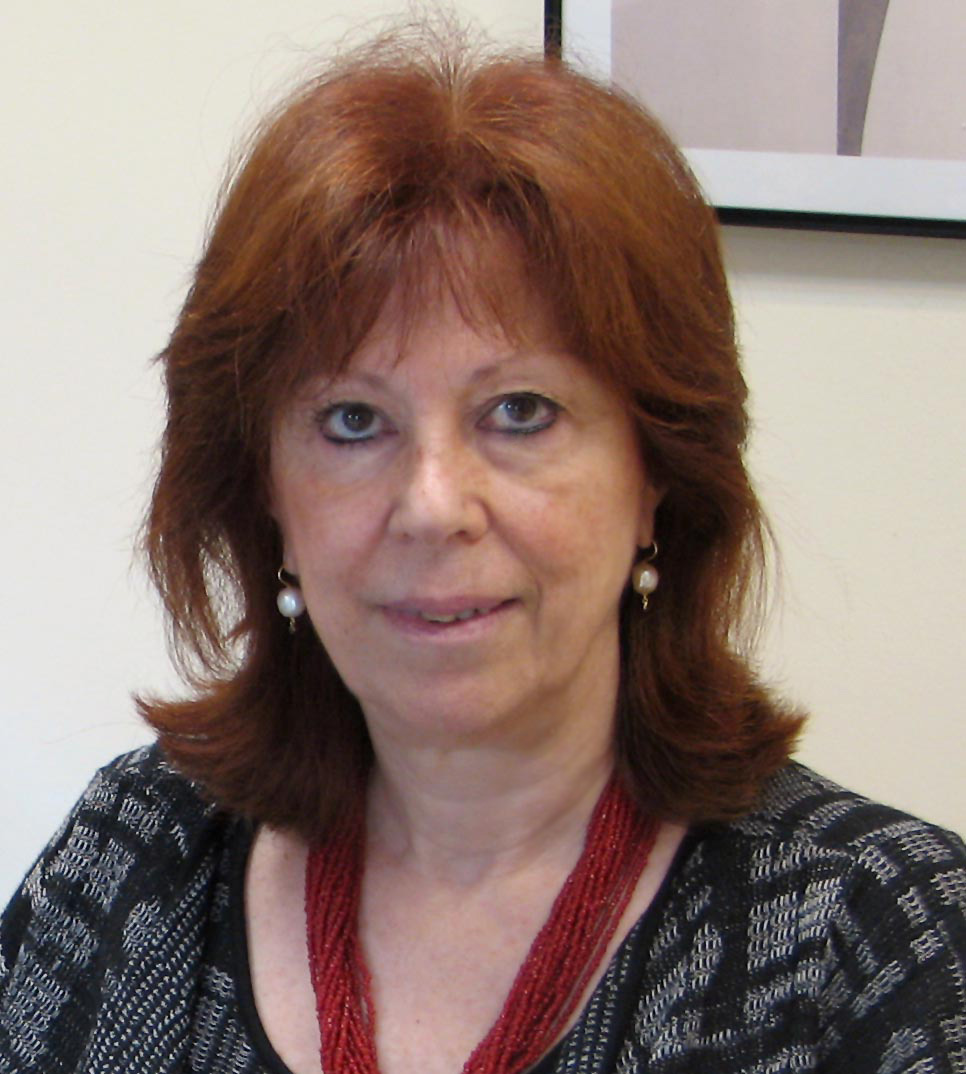
The Unit was established within the framework of the Laboratory of Cellular and Molecular Neurobiology – Stem Cells with the generous support by the Bodossaki Foundation and Research Funding from the Greek General Secretariat and Technology, the Ministry of Education and Incentive Programs of the Institut Pasteur in Paris.
The Unit specializes in:
1. Human embryonic stem cell culture, maintenance and differentiation
2. Generation of human induced pluripotent stem cells from differentiated somatic cells using cell reprograming technologies
3. Development of 2D cellular models for neurological/neurodegenerative diseases by application of directed differentiation of pluripotent stem cells
4. Generation of 3D cell culture systems for investigation of human brain development and disease
The Unit offers within the framework of collaborative projects or service contracts:
1. Preclinical drug evaluation in human pluripotent stem cell-based models of neurological/neurodegenerative diseases
2. Generation of induced pluripotent stem cells
3. Development of pluripotent stem cell-based models of neurological/neurodegenerative diseases
4. Training in human stem cell culture, maintenance and directed differentiation
5. Training in the analysis of cellular models of human neurological/neurodegenerative diseases
6. Consultancy for project development, provision of protocols, support in experimental design
- Antoniou N, Prodromidou K, Kouroupi G, Boumpoureka I, Samiotaki M, Panayotou G, Xilouri M, Kloukina I, Stefanis L, Grailhe R, Taoufik E, Matsas R. High content screening and proteomic analysis identify a kinase inhibitor that rescues pathological phenotypes in a patient-derived model of Parkinson’s disease. NPJ Parkinsons Dis. 2022 Feb 11;8(1):15. doi: 10.1038/s41531-022-00278-y.
- Kouroupi G, Prodromidou K, Papastefanaki F, Taoufik E, Matsas R. Organoids: the third dimension of human brain development and disease. Int J Dev Biol. 2021 Oct 26. doi: 10.1387/ijdb.210158gk.
- Kouroupi G, Antoniou N, Prodromidou K, Taoufik E, Matsas R. Patient-Derived Induced Pluripotent Stem Cell-Based Models in Parkinson’s Disease for Drug Identification. Int J Mol Sci. 2020 Sep 26;21(19):7113. doi: 10.3390/ijms21197113.
- Zygogianni O, Kouroupi G, Taoufik E, Matsas R. Engraftable Induced Pluripotent Stem Cell-Derived Neural Precursors for Brain Repair. Methods Mol Biol. 2020;2155:23-39. doi: 10.1007/978-1-0716-0655-1_3.
- Prodromidou K, Vlachos IS, Gaitanou M, Kouroupi G, Hatzigeorgiou AG, Matsas R. MicroRNA-934 is a novel primate-specific small non-coding RNA with neurogenic function during early development. Elife. 2020 May 27;9:e50561. doi: 10.7554/eLife.50561. Online ahead of print.
- Grudina C, Kouroupi G, Nonaka T, Hasegawa M, Matsas R, Zurzolo C. Human NPCs can degrade α-syn fibrils and transfer them preferentially in a cell contact-dependent manner possibly through TNT-like structures. Neurobiol Dis. 2019 Sep 5:104609. doi: 10.1016/j.nbd.2019.104609.
- Zygogianni O, Antoniou A, Kalomoiri M, Kouroupi G, Taoufik E, Matsas R. In vivo phenotyping of familial Parkinson’s disease with human induced pluripotent stem cells: a proof-of-concept study. Neurochem Res. 2019 Apr 15. doi: 10.1007/s11064-019-02781-w.
- Elkouris M, Kouroupi G, Vourvoukelis A, Papagiannakis N, Kaltezioti V, Matsas R, Stefanis L, Xilouri M and Politis PK. Long non-coding RNAs associated with neurodegeneration-linked genes are reduced in Parkinson’s Disease patients. Front Cell Neurosci. 2019 Feb 22;13:58. doi: 10.3389/fncel.2019.00058. eCollection 2019.
- Taoufik E, Kouroupi G, Zygogianni O., Matsas R. Synaptic dysfunction in neurodegenerative and neurodevelopmental diseases: an overview of induced pluripotent stem cell-based disease models. Royal Society’s Open Biology, 2018.
- Kouroupi G, Taoufik E, Vlachos IS, Tsioras K, Antoniou N, Papastefanaki F, Chroni-Tzartou D, Wrasidlo W, Bohl D, Stellas D, Politis PK, Vekrellis K, Papadimitriou D, Stefanis L, Bregestovski P, Hatzigeorgiou AG, Masliah E, Matsas R. Defective synaptic connectivity and axonal neuropathology in a human iPSC-based model of familial Parkinson’s disease. Proceedings of the National Academy of Sciences USA, 2017.


